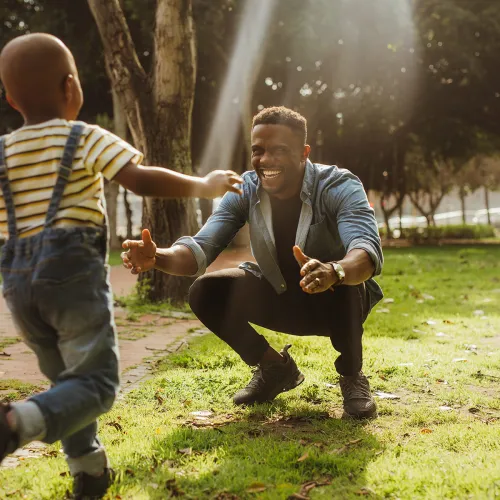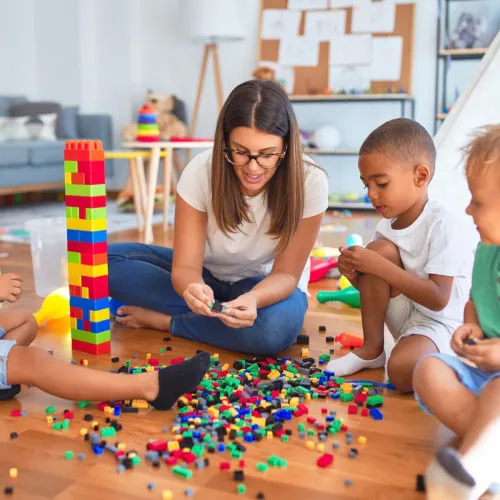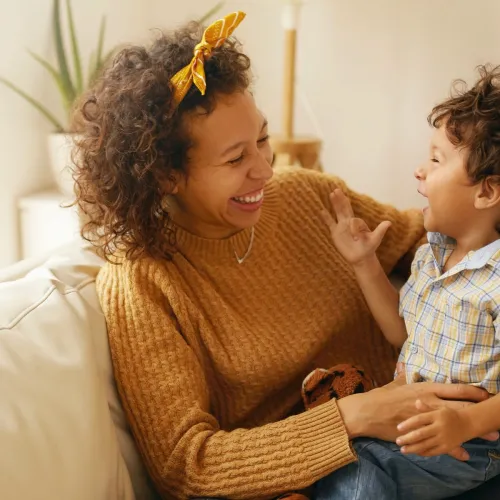5 Tips for Correcting Course When Co-Parenting Feels More Combative Than Collaborative
Co-parenting is challenging for even the most amicable divorced parents. But throw in lingering anger and hurt from a contentious divorce, or a new stepparent entering the scene, and parents may concede that co-parenting is an impossibility. But is this necessarily so?
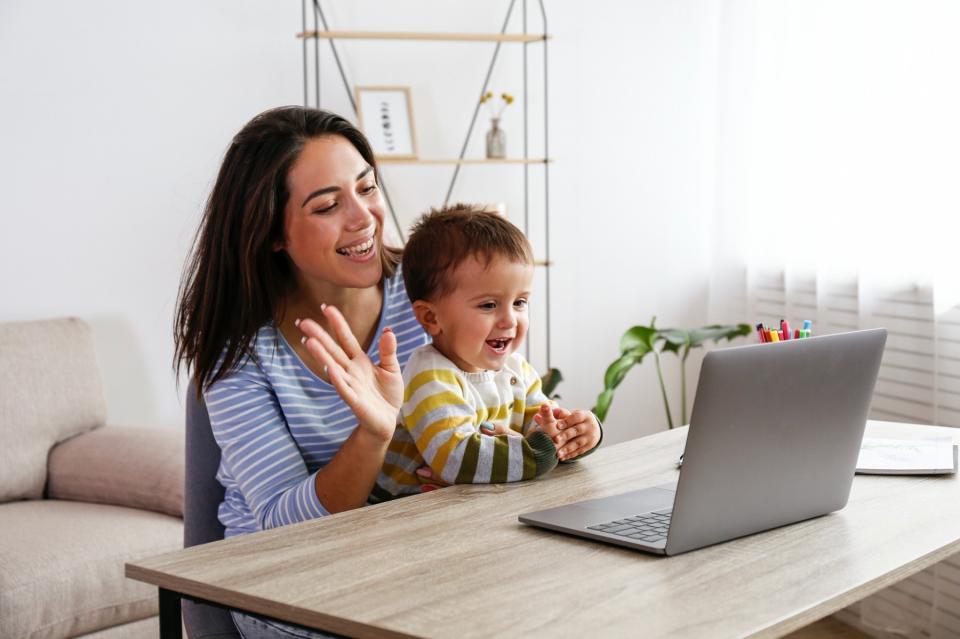
Writing off your relationship with a former partner can feel like the best thing for you personally in the throes of emotional anguish. But as the fog clears and life marches on, you may begin to feel the burden of this loss on your parenting team.
Unlike many divorced or separated couples who don’t share children, you two are inextricably tied to each other by your child. Even after they are grown, there will be weddings and maybe even grandkids. The situations in which the two of you will encounter one another lives on.
The transition from romantic partners to co-parents
You see, if you are expecting to resolve your anger with your co-parent, receive an apology or forgiveness from them, or suddenly and magically get along, you may be imposing unnecessary conditions on your co-parenting relationship. Collaborative co-parenting does not require that two adults apologize, forgive, or even like each other. It only requires that you both have a desire and are motivated to be good parents.
As someone who has experienced this transition first-hand, I know that relationships can be recovered or improved tremendously even after a long time has passed. So what can you do to adopt a collaborative mindset toward your co-parent? Here are five tips to guide your efforts.

Stop trying to fix your problems as a romantic couple
That ship has sailed, so why place your energy there? Whatever caused the two of you to end your relationship, it is either in the past or, in most cases, not related to your continued relationship as parents. So stop fretting over what went wrong.
My advice is that you move past the apologies or expectation to be forgiven as a prerequisite to co-parenting. Just let go and move on. It’s very liberating! From this point forward, stop putting any effort into your failed romantic relationship, and instead, focus on nurturing your new relationship as co-parents.
Don’t require that you like each other before you can co-parent
Even if you find you are completely at peace over ending your romantic relationship but simply can’t stand this person, there is a path for you two to move forward as cooperative co-parents.
First, transition the way you think of your relationship with your former partner from personal to more business-like. Second, if your separation was recent, living separately and time will do much to heal old wounds. Give yourselves time to adjust and decompress from the emotional destruction you suffered from the split.
Third, until you two are in a better place to set emotions aside and communicate constructively, leverage other tools to share information. If you can have a conversation at a distance, talk on the phone or through video.
If you can’t converse, try communicating in writing over email or text, but be mindful that tone and sentiment could be misinterpreted by either of you. And if these solutions don’t offer the guardrails you need to keep communications safe and respectful, try the communication tools in OurFamilyWizard.
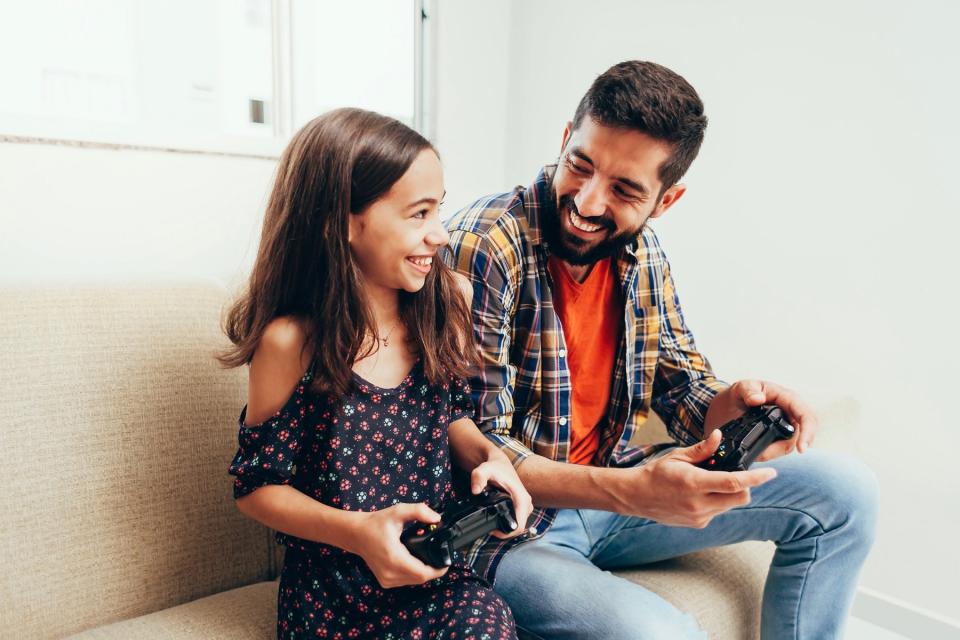
Do apologize for mistakes you made
I know I said above that a parent shouldn’t make getting an apology a prerequisite to co-parenting, but that doesn’t mean you shouldn’t do it if you know you made a mistake. While apologizing will never erase what has already been done, it can go a long way to ease the pain imposed on the other person. And if it means less hostility and more amicable interactions with your co-parent going forward, isn’t it worth it?
Even if you believe you weren’t in the wrong, you can still acknowledge your former partner’s anguish. This doesn’t mean it is justified or that you agree with it. It just means you’re listening and can see they are in pain.
Do forgive past misdeeds
I’m not suggesting you forget whatever awful thing the other person did. Forgiveness never erases the mistake. It just makes it easier to move past it so that two people can focus on whatever comes next.
And what is this new focus? To be good parents and raise happy, responsible, respectful humans. Even if the other person has not apologized, I would suggest that you forgive them anyway, even if just to yourself. It will free you from the weight of carrying all the residual anger around.
Do demonstrate collaborative behavior even if your co-parent does not
Trying to do the right thing when the other person won’t play along can be maddening. At some point, you might consider giving up on the whole idea of co-parenting and concede that you’ll be apologizing to your child for the rest of your life for failing as co-parents. But I implore you to keep going!
If you’re not sure how to demonstrate collaborative behavior, just focus on treating your co-parent the way you would want to be treated. You may not know how they want to be treated, but you certainly know what you would and wouldn’t want said or written to you. So stick with that.
After a while, most people find it difficult to continue being mean if you’re always being nice. In my experience what usually happens is the other person begins to reciprocate. They become mindful of their words toward you and release hostility. They focus on being a good parent. And, as a result, you, your co-parent, and your child are likely to find greater peace in your redefined family existence.
Are there exceptions to what I suggest here? Absolutely! It may be impossible or even dangerous to co-parent with someone who has abused you or your children, has engaged in criminal behavior, or has a substance abuse problem. Your co-parent will need to resolve these issues before collaborative co-parenting will have a good chance of succeeding. If you are faced with these or similar issues, seek professional help for you and your child, and do what you can to encourage your child’s other parent to also get help.




